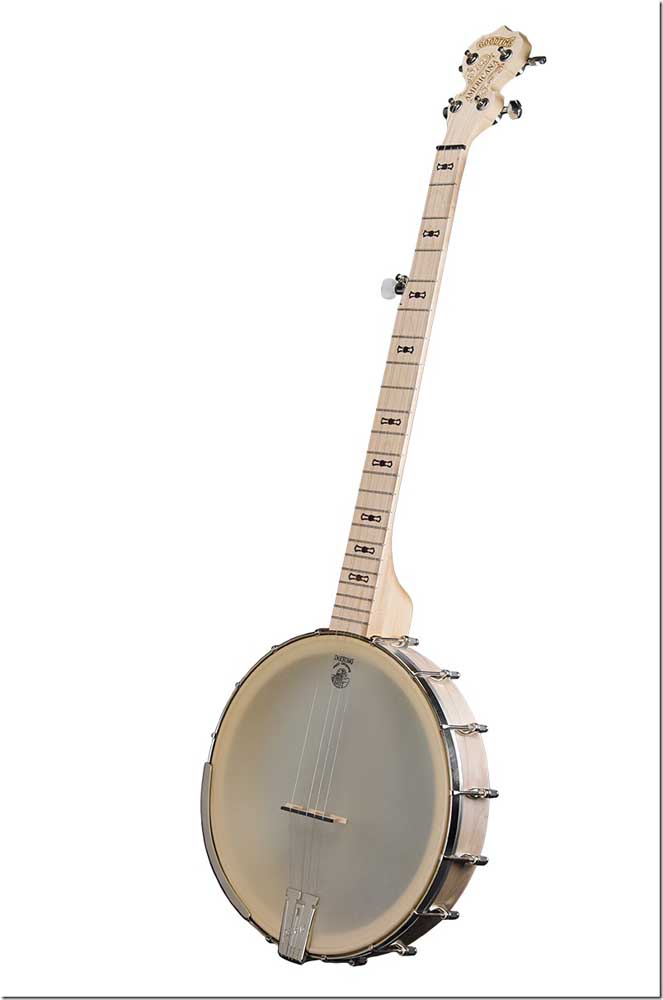Deering Goodtime openback banjo
Published 12:00 am Friday, August 28, 2015

- Deering Goodtime openback banjo
Breedlove Guitar Company set out to craft a truly special guitar for the 20th anniversary of the Sisters Folk Festival. Breedlove donates a custom guitar each year for the festival to raffle to raise funds for their educational outreach program, the Americana Project, and this year they have outdone themselves.
The guitar’s custom inlay adorned with a vintage microphone and “SFF 2015” is striking. The red cedar top and sunburst finish is beyond beautiful.
Trending
Valued at $8,000, this is no ordinary guitar. But more than its aesthetics, it is special because of the wood it’s crafted from: a piece of a legendary Honduran mahogany nicknamed “The Tree” that was donated by Jay Howlett, a 62-year-old singer-songwriter from Northern California.
“The timing was perfect and everything just all came together in a really good way to make this guitar so special for the anniversary,” said Sami Mulhern, artist and external relations for Breedlove. “We are really excited how it all came together.”
The story of The Tree has become legendary in woodworking and music circles.
It was discovered by loggers in 1965 in a remote area of the Chiquibul Jungle in Honduras (now part of Belize). At 100 feet tall with a base that was 10 feet, The Tree was massive. And its spiraled bark was a clue to the unique figuring of the wood, which is more dense and stiff than common mahogany. As of today, no other Honduran mahogany has displayed the same characteristics as The Tree.
The loggers felled The Tree by ax, but in the process the giant mahogany tumbled down a ravine, landing where it proved impossible to extricate.
The Tree rested in the ravine for nearly two decades before a local sawmill owner rediscovered the fallen tree. The sawmill owner and an American wood importer eventually removed The Tree from the ravine, dragging it in pieces through more than 100 miles of jungle.
Trending
The Tree was milled in the U.S., yielding 12,000 board feet of timber (a board foot is 1 foot wide, 1 foot long and 1 inch thick). Far more expensive than typical mahogany, much of the wood would be used for architectural design and furniture. But it also became prized by the guitar-building community for the quality of sound its guitars produce.
“They found that it just made really exceptional guitars,” Howlett said.
Howlett first came across the wood from The Tree in 1992 at a guitar show in San Jose. He fell in love with it, he said, and immediately bought a set of boards and asked Breedlove to build him a guitar.
Since then, Howlett has acquired the rare boards whenever possible, purchasing them sporadically from New Jersey to Texas to Washington.
“It was a passion that grew into an obsession,” Howlett said.
As a performer from the Sisters Folk Festival’s early days, Howlett has always felt a strong connection to the event. And he wanted to do something special for the organization.
“I like the people and I love what they do with the money (raised),” Howlett said, referring to the education and music programs Sisters Folk Festival supports. “I heard that Breedlove was doing something special for the 20th anniversary guitar for the festival, and I said, ‘Well, you want to build it out of The Tree?’”
Breedlove’s response was an easy one. Using The Tree, Breedlove built a spectacular guitar that took weeks complete. The effort was worth it, Mulhern said. After all, supporting the Sisters Folk Festival and the Americana Project is a labor of love for Breedlove.
“It’s just a great festival and a great program to be part of, and we’ll be doing it for a long time,” Mulhern said.
The gesture, both by Breedlove and Howlett, has not gone unnoticed, either.
“It is just very special and we are fortunate and grateful,” said Brad Tisdel, creative director of the Sisters Folk Festival. “The festival in all of its programming has really built a community of folks who are deeply committed to it.”








